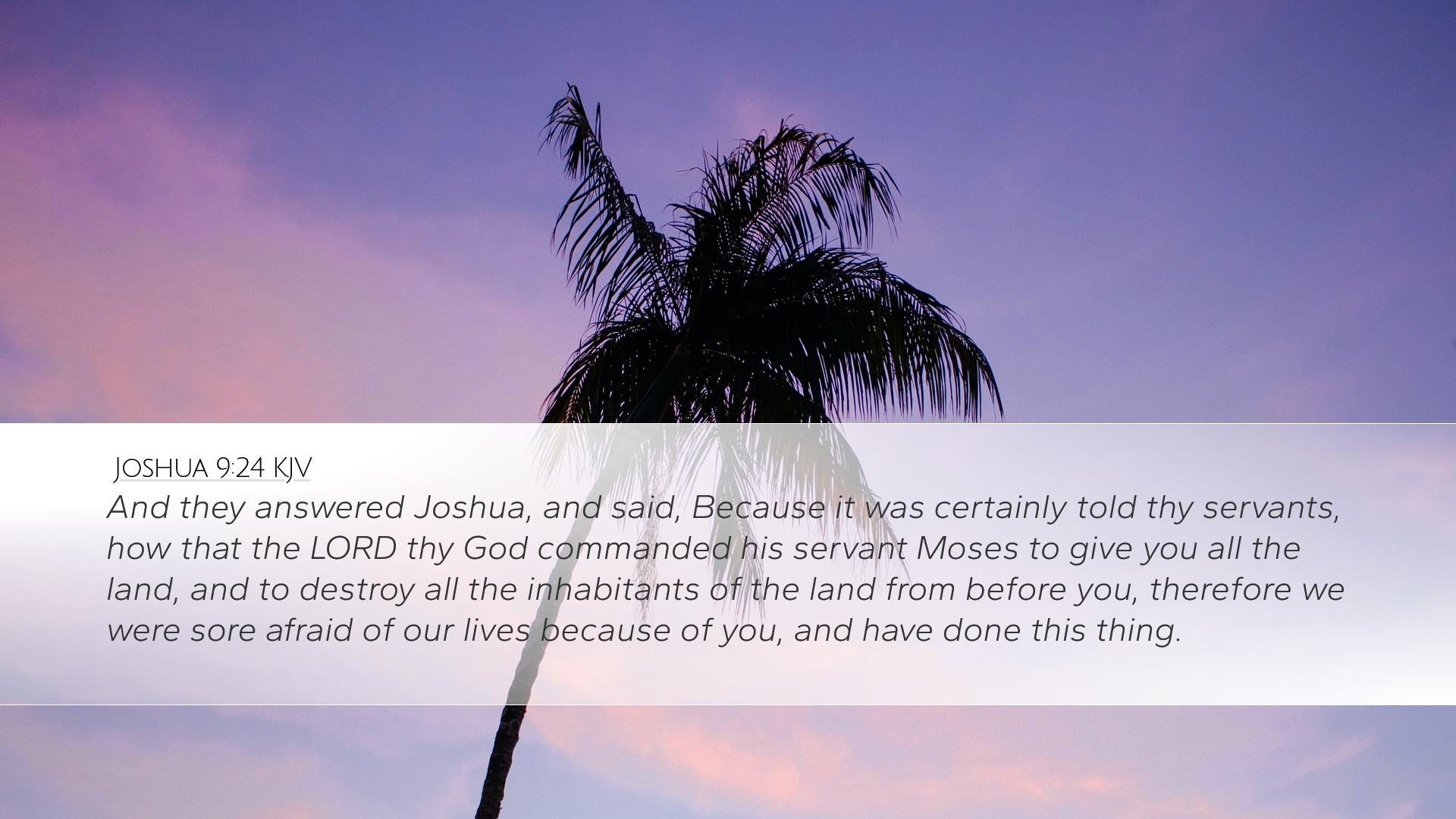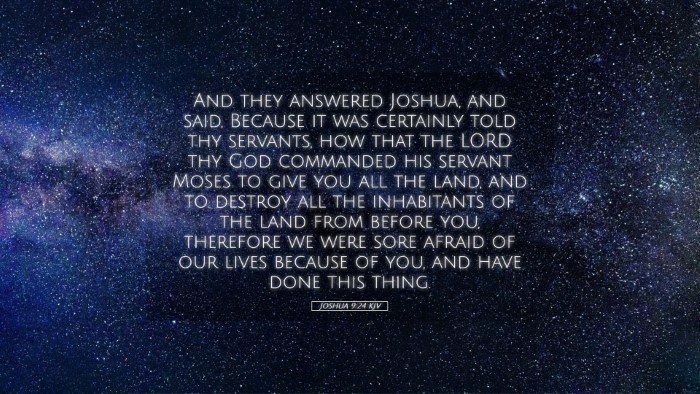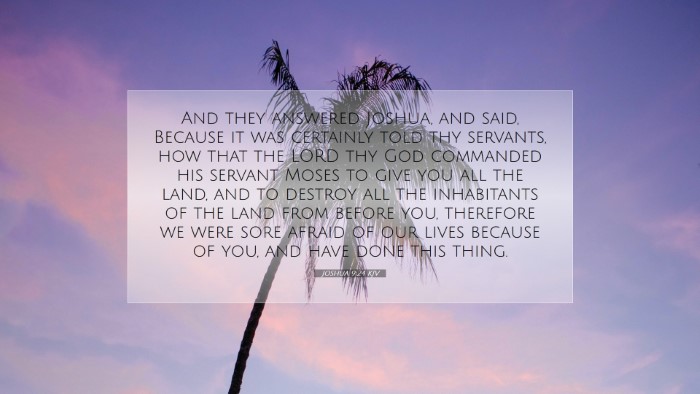Commentary on Joshua 9:24
Verse Text: "And they answered Joshua, and said, Because it was certainly told thy servants, how that the LORD thy God commanded his servant Moses to give you all the land, and to destroy all the inhabitants of the land from before you, therefore we were sore afraid of our lives because of you, and have done this thing."
Introduction
This verse offers a key insight into the motivations and fears of the Gibeonites, as well as the consequences of the Israelite conquest narrative. It showcases the interplay between divine command, human agency, and the outcomes of fear and deception in the biblical account of Israel's journey into Canaan.
Understanding the Context
The events surrounding this verse take place shortly after the Israelites crossed the Jordan River and began their conquest of the Promised Land. The Gibeonites, residents of Canaan, resorted to a strategy of deception to secure their survival. Their acknowledgment of the Lord's command to destroy the inhabitants of the land reveals both their knowledge of Israel's God and their desperate attempt to preserve their lives.
Theological Significance
- Fear of God: The Gibeonites illustrate a profound awareness of God’s power. Their fear is driven by the realization of the coming judgment upon the lands of Canaan, as commanded by God through Moses. This fear leads them not only to acknowledge the sovereignty of God but also compels them to take action for survival.
- God's Sovereignty: The revelation concerning God’s command to Moses is critical here. It serves to affirm God’s ultimate authority over all nations and peoples. The Gibeonites' recognition of God's command signifies that even those outside of the covenant community are aware of God's dealings with His people.
Insights from Public Domain Commentaries
Matthew Henry
Henry emphasizes the concept of covenant and the grace of God manifested even towards those outside of Israel. The Gibeonites’ fear and their subsequent plea reflect the human condition of recognizing one's need for mercy. He points out that their cunning plan, while deceitful, ultimately reveals a glimmer of understanding towards the holiness and might of Israel’s God.
Albert Barnes
Barnes highlights how the Gibeonites' awareness of Israel's military conquests played a critical role. They had heard of the divine mandate given to Israel, creating a rational fear that drove them to establish an alliance with the invaders. Barnes notes that this account teaches about the essence of fear—how it may lead individuals towards either faith or further deception. In this case, their fear drove them to seek mercy from Israel.
Adam Clarke
Clarke provides a thorough analysis of the narrative's historical context. He remarks on the significance of the Gibeonites’ reaction. Their acknowledgment of Israel's God stands as an indictment against the pagan nations, who had the same opportunity to repent. Clarke also notes the irony in the Gibeonites’ actions, as their fear of destruction drove them to craft their own fate, leading to a different form of allegiance to the very people they initially feared.
Lessons for Believers Today
- Awareness of God’s Power: Just as the Gibeonites recognized the impending threat from Israel, believers should live with a constant awareness of God's power and holiness. This recognition should lead to reverence and an earnest desire for a relationship with Him.
- The Complexity of Human Actions: The Gibeonites' actions demonstrate how fear can lead to both wisdom and folly. It challenges contemporary believers to examine their motives and the means by which they seek to gain God's favor or avoid His judgment.
- The Call to Repentance: The narrative encourages conviction of sin and calls for repentance. Just as the Gibeonites sought mercy, individuals today are invited to seek the grace of God, recognizing their need for His salvation.
Conclusion
Joshua 9:24 encapsulates a powerful moment of both fear and insight for the Gibeonites in their interaction with Israel. This verse not only highlights the acknowledgment of God's sovereign authority but also opens a discussion on the need for mercy and the complexity of human motivations. By examining this verse through the lenses of public domain commentaries, we find rich insights that serve to inspire deeper theological reflection, pastoral action, and scholarly inquiry.


